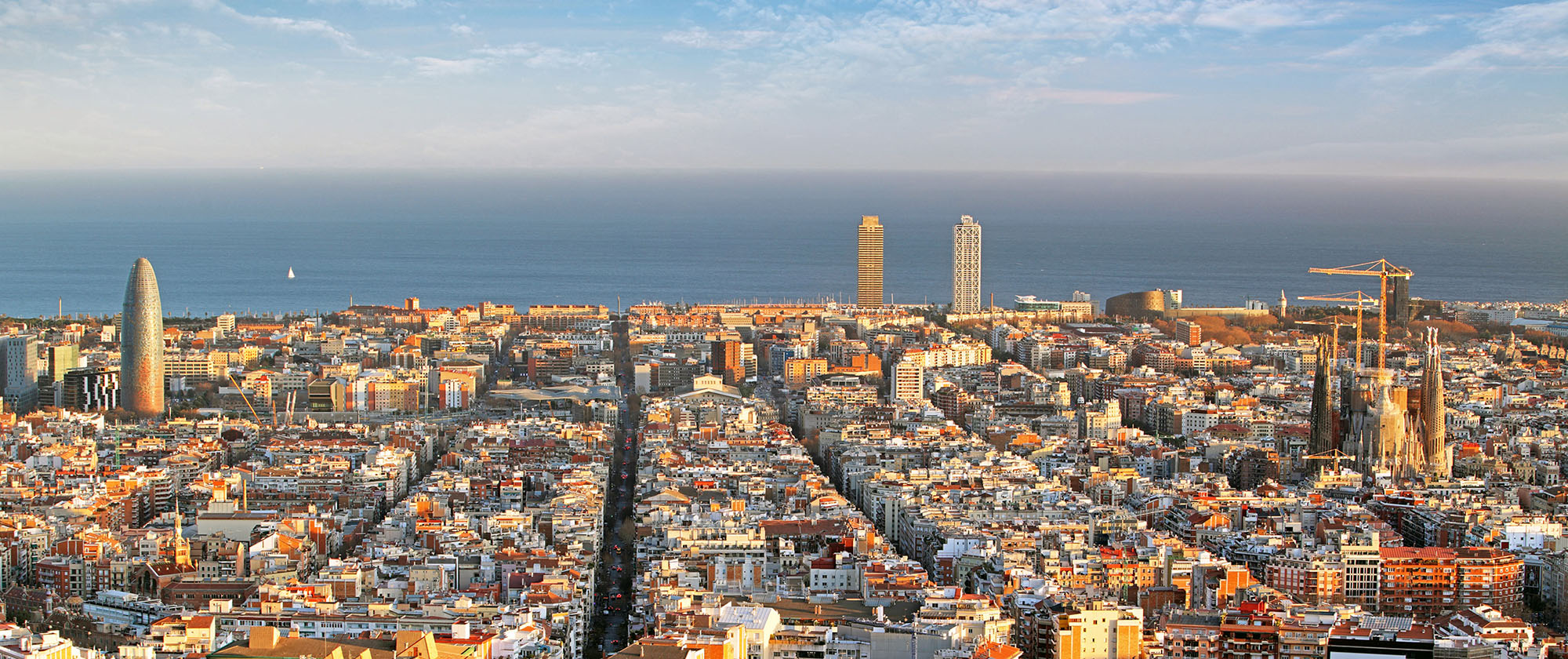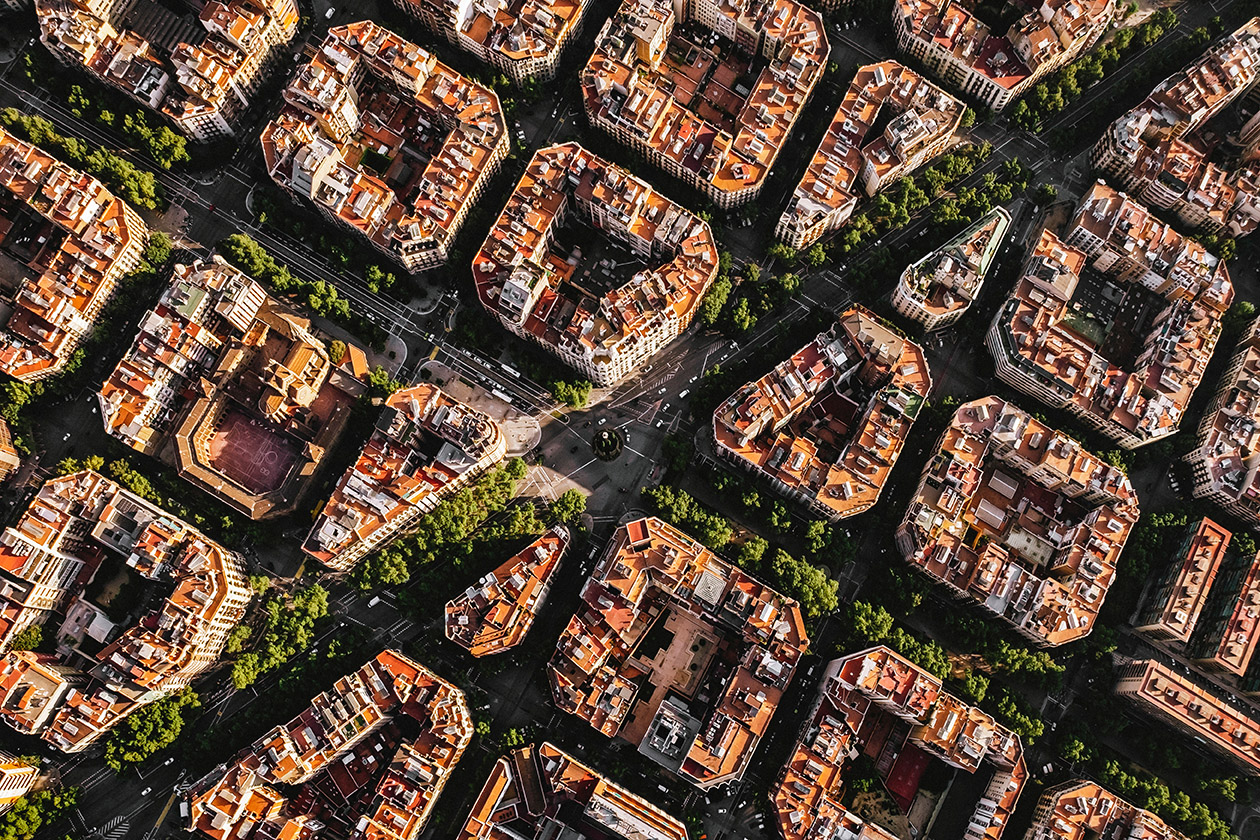

Time to redesign our cities
New lifestyles in the city call for redevelopment. With this in mind, we improve urban centres and work on the recovery of neighbourhoods. In particular, the 2020 pandemic has highlighted the need to make cities grow in a more sustainable way.
2020 was a year of mandatory revolution for thousands of sectors, and the redevelopment of cities was not left out. With mobility, economy and social life around the world at a standstill, the demand for action on the sustainability of cities became more than obious. The current situation forces us all to speed up the implementation of measures such as the action plan to integrate sustainability and health in cities, from the Servei de Plans i Programes de la Generalitat de Catalunya, approved three years ago and which advocated for the concept of friendly and healthy cities.
Paris has already designed its ecological transformation
Cities in general continue to be the places on the planet with the highest levels of atmospheric pollution, which is responsible for thousands of deaths. In many of Catalonia’s cities, this chronic mortality linked to air pollution reached historic lows during confinement. On the other hand, confinement highlighted the limitations of cities in terms of being able to do sport and go out for walks, and made it clear that there is an urgent need to redesign cities in terms of urban planning in order to improve people’s health.
Confinement reduces pollution
The pandemic has opened our eyes and made us experience first-hand the need to redevelop big cities. And this is what the Servei de Plans i Programes intends to do, with its first tool in its hands, the Institute for Global Health, ISGlobal. As a curiosity, Barcelona is at the top of the list in a study done by the Consejo Superior de Investigaciones Científicas (CSIC) on the most polluted cities in the world. Even so, confinement brought pollution in Catalonia down to historic lows.
Tips for sustainable cities
But there is still time, and ISGlobal gives us five tips for more sustainable cities. As a starting point, it recommends improving air quality, which is considered a priority for governments, city councils and urban planners. According to ISGlobal, 7 out of 10 people will be living in urban environments thirty years from now. The second issue is noise, as ISGlobal explains, 13 million people in Europe suffer from sleep disorders due to noise, which is responsible for 36% of the health problems caused by poor urban planning. We understand that noise must be reduced in cities by reducing speed, or also by promoting quiet areas such as green spaces. The third point is natural spaces, we need a city with more green spaces to benefit people’s health, especially when we know that studies link natural spaces with the improvement of children’s attention span. Green spaces reduce stress, increase life expectancy and improve our general health. As a fourth point we have physical activity; and so increasing our physical activity levels has to be integrated into the need for good city design, as sedentary lifestyles are a serious global health problem that needs to be addressed. The final area for improvement is temperature. In big cities it rises on average by two to four degrees during the day and by about ten degrees at night, leading to premature births, mortality, traffic accidents and accidents at work.
Undoubtedly, cities need to be redeveloped, and this must be done with the improvement of people’s health in mind, not economic improvement, redesigning every corner of every city and every neighbourhood so that in the not too distant future we can find the time to live in them and enjoy every corner. And right now, it is no longer a necessity but an urgency that must be acted upon without delay.
Do you want to be the first to receive the latest news about 11Onze? Click here to subscribe to our Telegram channel
Leave a Reply
You must be logged in to post a comment.




👏
Sembla un somni però tal com va el món cada cop són és necessàries aquestes iniciatives per no dir imprescindibles
Estic d’acord amb tu Francesc!
bonissim
Gràcies, Manel!!!
👍
Gràcies, Joan!!!
Menys edificis mes verd i cladria pensar amb fer ciutats mitjanes les macro
Si el transport públic. Fos eficent hi hauria menys necessitat d’automobil
Hola Alícia! Tens raó! Les problemàtiques de les ciutats són cada vegada més per motius de massa aglomeració. Segur que entre tots i totes podem construir nous models i patrons que siguin més eficients! Endavant!
Transports públics gratuïts per poder_ne entrar i sortir lliurement?.